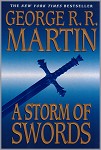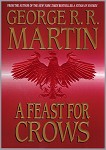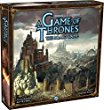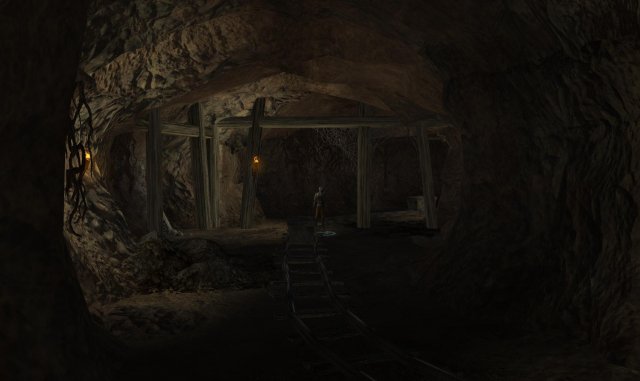Living in the Seven Kingdoms |
| World of Westeros - Miscellaneous | |||
| Wednesday, 15 June 2011 22:37 | |||
|
Tags:life-seven kingdoms-culture-roles-protocol-play style-noble house-game of thrones-band of heroes Playing a character in the Seven Kingdoms can be different from other fantasy RPGs. There is far more intrigue in Westeros than there are monsters, and so players seeking a game of epic fantasy combat will have a harder time in this sort of game. Now that you have your character roughly defined, it is time to take a closer look at the styles of play in the Seven Kingdoms and how to fit your character into those types of games. Play Style: Noble HouseIn this style of play, you are the members and associates of a particular noble house. Were the novel A Game of Thrones to represent the chronicles of a game, this would be a game centred on the family and associates of House Stark. Eddard, Catelyn, Robb, Theon Greyjoy, and Jon Snow would all be likely player characters. Conceivably Bran, Arya, Sansa, Ser Rodrik Cassel, or possibly even Tyrion Lannister could be player characters as well. Aside from dealing with threats the GM creates, much of your time will likely be spent attending to your duties and pursuing your character’s goals. Such goals can be hard to define in this style of game. On one hand, you do not want to overshoot and proclaim from the point of character creation that you want to become king of the Seven Kingdoms. On the other hand, you do not want to undershoot and make trivial or silly goals like wanting to goose the house maester every time you pass him. A good rule of thumb is to decide that any goal your character starts with should be something he or she can accomplish within the house holdings. Appropriate goals could include seeking the acceptance of your father, finding some way to show your martial prowess so that you might become a Knight, or — in a more player conflict-oriented game — seeking to force your elder brother into joining the Night’s Watch so that you can inherit your father’s title. Because of the increased emphasis on social interaction, it becomes harder to justify the player characters moving around in a big group. While the characters may be situated around a central location, such as the family keep, there could still be miles of separation between individual characters. It is unrealistic to take the whole mob to every situation. The second-eldest son may have to go off to investigate rumours of poachers while the youngest daughter is having tea with a doting but senile aunt. You may not even want the other characters with you when you go different places. If your GM is running a game heavy on inter-player character intrigue, you will not want to have an in-character audience every time your character schemes and plots. To further complicate things, there is no method of quick communication except for sending servants with messages. If your message’s recipient happens to be nearby, you could hear back from him or her within the hour. If the recipient is far away instead, it could require the maester to send a raven messenger and hope for a speedy reply. What this leaves the GM with is the threat of having to run a half-dozen different one-player games, which can be both stressful for the GM and boring for the other players while they wait for their face time with the GM. Some groups do not mind a lot of one-on-one work with the GM, as marvelous role-playing can come out of such solitary intriguing and add complex depths to the game’s storyline. Players in such games are often willing to accept a little idle time on their hands in exchange for a higher level of intrigue, but this is not always the case. As a player, there are a few things you can do to help your GM keep the game running smoothly. The first is to work in small groups. While difficult to justify bringing six to eight people with you to a small luncheon, it is easy to explain a friend or two accompanying you. Three groups of two are easier for a GM to deal with than six groups of one, then, while the GM is focusing on other players, you can role-play with each other. Another way to help is to keep your characters physically close to one another. While this does not mean that you cannot ride your horse out to inspect the borders of your family holdings, it does mean that you should avoid leaving your holdings all together and heading off to King’s Landing on a lark. Travel in the Seven Kingdoms can easily take fortnights or months. If the group scatters over Westeros, some portion of the characters will be removed from play for a big chunk of game time. Any trip of any notable length should be a major plot element and should be discussed in advance with your GM. Daily LifeWhen not embroiled in intrigue and conflict, your character is likely performing daily duties or pursuing favourite pastimes. For non-noble characters this can be an obvious task. If you are the master of horses, you are likely taking care of the stables. If you are the house maester, you are tending to your ravens, checking for messages from other maesters, or taking care of the health of the members of the house. If you are noble born, however, your duties become more vague, especially if you are not the house’s heir. A noble character will often work as liaison between his or her lord and the people of the demesne. He or she will often be called upon to run trivial errands for the lord, work with assorted retainers in the castle, and settle minor disputes if needed. A noble character can also use these interactions as chances to form alliances with the people of the lord’s holdings. A character who is frequently sent to see the maester on behalf of his or her lord can use that opportunity to chat. The maester may be more talkative with a friend who visits regularly than those who come only when they need something. There is also the issue of leisure time. Your character presumably does other things besides the work of the house. For certain characters, these “other things” even take up more time than the work he or she is supposed to be doing. A martial character may choose to go hunting or spar out in the practice yard with the weapons master, while a more waggish character may go out drinking and wenching. There are balls and feasts to grace with your presence, friends to visit, and tournaments to attend. Each of these situations provide opportunities to role-play with assorted player characters and NPCs. These events also provide chances to advance your character’s goals. Crucial information can be swapped at taverns, poison can be slipped into a wine glass at a feast, and two rival heirs can seek to “improve their claim” to their father’s estate under the pretence of a good-natured hunting expedition. Roles in a Noble House GameThere are a number of potential roles you can play within the scope of a Noble House game. Below is a sampling of some broad categories your character may fall into. Noble Family MemberYou are a member of the noble family by virtue of blood or marriage. You may have a specific duty that you carry out for the house, much like a retainer, or you could be a lout who lives off the earnings of the family and contributes nothing. RetainersYou are a servant of the house. While not highborn, you have duties that you carry out for the house and are an integral part of the house’s structure. You may be anything from a landed knight (given said lands by the lord) to a sworn sword, to a local villager who has proven him or herself. WardsThough you are noble, you are technically a member of another house. At an early age you were given over by your family so that you might see more of the world and form more positive relations with the house that agreed to raise you. If relations are positive between your two houses, you are considered a ward. If things are hostile, you are considered a hostage. BastardsRather than being left ignorant of your lineage, your father chose to recognise you as one of his natural born children. You are named after the tradition of your region and are possibly not well liked by your half-siblings or their mother. BannermenYou are a member of a lesser noble house. Your noble house owes allegiance to the house around which the campaign revolves. Though considered extraneous in your own house, you have found a place of employment with your family’s liege house. MaestersTrained by the Citadel in Oldtown, you have been assigned as the maester (or perhaps an apprentice maester) to the noble house. You not only manage the house’s ravens, but you also tend to the nobles’ education and illnesses. GodswornMany noble houses will have a number of septons and septas assigned to their household. In addition to working in the local sept, you also provide supplemental education to the noble family and tend to their spiritual needs. Non-Standard RolesMore so than in the other two styles of play, characters in a Noble House Game have the opportunity to take on roles that would otherwise be non-standard in a conventional role-playing game. Not only can you justifiably play the retainers of the House, but you can also take on the role of the younger children of the noble family. As a child of the house, your duties are simply learning what your duties as an adult may be. While not covered extensively in the books, the Stark children have these very roles. It may not be very interesting to play the pretty daughter who spends her days sewing and receiving praise on her stitches from the septa, but playing the awkward tomboy forced into such lessons, or the sons who accompany their father to the execution of a criminal are rich with role-playing possibilities and help you develop your character from a more fundamental level. Social Standing and Game MechanicsThere are some things that no game rule can adequately detail. The birth order of children in a noble house is a prime example of this. What exactly is the best way to determine the line of succession? The GM could have an auction where characters sacrifice some starting benefits in order to be closer to the top, or else require some special Feat to have that honour (such as Heir). Although the heir is thus weaker in some regards, he (or more rarely, she) will have more Base Influence Points. As for the remaining children, the method endorsed here is to simply work it out with your fellow players. By doing so, you have a head start on developing the relations between your characters. By emphasising resolution by discussion rather than by hard mechanics, you keep role-playing as your primary focus. Other aspects of the game that you could work out among your fellow players include initial duties for nobles, shared backgrounds, political relations, and general feelings towards each other. Female CharactersLooking at the options for roles in a Noble House game, it may seem that a female character would have little to do in such a campaign. Not everyone loves doing needlepoint as much as Sansa. The female characters in the books seem to take one of two approaches to this problem. Some, such as Arya, try to forsake the role defined for them and attempt to be more “manlike” in their approach. They seek to learn martial knowledge and engage in typically male pursuits; some may even spend time disguised as a member of the opposite sex. Up until a certain age, it is very easy for a girl to pass herself off as a boy. With skilled use of makeup and clothing it could be possible to push the charade for much longer. Others, such as Daenerys and Cersei, accept the role they’ve been given and then bend the position into something more to their liking. They become leaders and social manipulators. While not every female character can aspire to become a queen, there is a great deal of subtle influence a talented woman can wield in the Seven Kingdoms. Given the right opportunity, women in places of power can be direct and even brutal. Play Style: Game of ThronesIn this type of game, you portray one of the movers and shakers of the world. The plotting may revolve around the Iron Throne in Westeros, or it could involve the intrigues in more remote locales, such as the Free Cities. Your group may represent a single faction that is seeking to exert its influence, or it could be that the player characters are plotting against one another in their own attempts to improve their own personal power. It could even be that you are all plotting against one another while trying to achieve a common goal. It is more likely in this style of play than others that your character will be more worldly and experienced, with more resources than most starting characters. Your GM should inform you if you are creating characters above 1st Level, as well as how to handle the vast resources you may likely command. More so than in a Noble House game, a Game of Thrones will involve more time alone for individual characters. It is entirely possible that a player character will not only need to separate him or herself from the rest of the group, but that he or she will also need to travel to various remote locations to personally supervise pet projects. As mentioned earlier, this can make life difficult for the GM. Not only will he or she have six separate games to run, with a lot of downtime for those characters not involved, but the characters also have little hope of crossing paths. As usual, you as a player have tools available for making both your life and the life of your GM easier, and the game more enjoyable for all. Some of the tricks described above in the Noble House can be used in a Game of Thrones. It helps to bring player character allies with you when you go anywhere, so that you give players more face-time with the GM all at once. It is also good to have in-character conversations with other characters while the GM is focusing on another player. It becomes harder, however, to justify avoiding travel as much. It is far more possible in this style of play to have goals that your character must be involved in personally. One approach to reducing the impact of this is to seek out methods of skirting reality in order to keep game play smooth. An example of this involves co-ordinating with your GM and fellow players so large, time-consuming tasks all happen at roughly the same time. If all the characters need to engage in travel or lengthy work on a personal project, it would be fortuitous if all characters were engaged in those tasks at the same time, and completed them simultaneously. You could also skew the time scale. Again, with the co-operation of your fellow players, you may try shifting the time frame from days to months. When not immediately doing anything, it can be assumed that your character is going on about his or her normal business. Business appointments, dinner engagements, and travel time are all background noise that takes place regardless of whether you as a player pay much attention to it. Instead of deciding on a day-to-day basis what your character wants to accomplish, you can instead describe in broad brushstrokes what your character is seeking to accomplish over the course of days or weeks. An important emphasis here is that while this game is meant to be gritty and realistic, adherence to realism should not get in the way of having fun. It is a precarious balance, but one that you can achieve with time. Playing the NPCsRather than playing newly minted characters of your own creation in a Game of Thrones style of play, you could instead play out campaigns as major characters in the books. This provides an opportunity to take on the mantle of your favourite personalities and explore the character on a deeper level. You have the challenge of both trying to stay in character based on what is known about this person as well as extending this into speculative areas of your own. Even if you are not excited by role-playing challenges, this can allow you to simply be a character you find particularly cool. There can be something gratifying about playing a large, nigh-unstoppable killing machine like Ser Gregor Clegane. A final important factor is deciding on your character’s particular goals. Since there are many secrets still buried in the story, it is up to you and your GM to determine the goals, secrets, and hidden agendas your character may possess. This allows you to play conspiracy theorist and figure out how you think things work behind the scenes. Note: Playing an NPC will require GM approval. Candidates who'd like to consider this option will need to demonstrate a solid grasp of Westeros lore, a thorough understanding of the character, and above average role play skills in order to realistically qualify. Playing the UnderlingsAnother way to minimise downtime when your character is out of the loop is to role-play the activities of another player character’s underlings. While such characters are not meant to replace your character, they can provide you with an opportunity to continue playing in a situation to which you may not normally have access. Not only can it add depth to the NPCs and a chance for you to sample playing new characters, but it also saves the GM from either trying to portray too many NPCs in a single scene, or else leaving critical NPCs strangely mute when the GM forgets they are present. Generally, an underling should have a bare bones write-up rather than a comprehensive character sheet. The GM should ensure that all players get a fair allocation of game time, and remember not to forget who the key characters are. Some players may not feel comfortable playing multiple-roles, and so the GM may wish to ease them into this style, at first with very minor roles, then slowly giving them more distinct or important characters to run. Roles in a Game of ThronesWhile many of the roles from a Noble House game can be expanded to fit into a Game of Thrones, there are some broad character types that represent the typical characters to be found in this sort of game. SpymasterWhether in an official capacity or otherwise, you have carved a niche for yourself as one who is talented at gathering intelligence on the major powers in the Seven Kingdoms and beyond. You make it a point to draw together an army of snitches and sellouts, while simultaneously leveraging the information that you have gathered to extort more powerful figures into feeding your stream of information. MoneylenderYou are able to spin money virtually from thin air. Through a combination of investments and interest-earning loans, you are able to buy or extort loyalty and influence. Military CommanderAs many kings have demonstrated, you cannot rule without the support of the military. With a band of armed men you have a degree of influence that those with glib tongues and honeyed words lack. You possess a valuable resource that you can either lend to your allies or wield on your own. Official of the FaithOthers may choose to deal purely in the vulgar world of the mundane, but your power lies in your sway over the souls of your worshippers. As a spiritual advisor to the people, you learn information for free that others must work for. As a representative of a charitable institution patronised by the nobility, you also rarely lack for money. NobleBy right of law and tradition, you are the custodian of not only a stretch of land but also a portion of the population. The armies of the Seven Kingdoms are pulled from your people. The treasury of the Seven Kingdoms is built from your taxes. While a weak noble can easily be replaced, one with strong Influence and support can become irreplaceable. Sending RavensYou may see if your GM will allow you to adapt messages sent back and forth via raven into the form of brief conversations. While it will not be as realistic as the true sense of sending letters that can be easily intercepted,it is certain to be more fun than frantically trying to write out notes to each other in-character. Information: The True Coin of the Realm“I must have gold, and another fifty birds.” All characters can benefit from sufficient information, not just those dedicated to the role of a spymaster. Eddard Stark clearly demonstrates that merely having a title does you little good if you operate blindly or do not act on the knowledge you are given. From the dark words carried by ravens through the Seven Kingdoms to secret messages hidden in false-bottomed boxes, the flow of information is a powerful force. The first and most important step is to establish a spy network. This could be as little as a couple of well-placed guards under your pay, or as complex as a horde of servants and commoners bringing their secrets to you in exchange for a few copper coins. But how do you get people to bring information to you? For common information, all it takes is planning and money. You find a group of talented individuals to act as your primary agents. Ideally these agents will not even know each other. Without For example, Captain Moreo reports to Varys, or so Petyr claims. Petyr himself owns several brothels, numerous spies, and the Commander of the City Watch. Queen Cersei has numerous guards that report to her, as well as her agents in the Kingsguard and family members scattered thick throughout the court. Lord Varys, of course, has little birds seemingly everywhere ... and apparently prefers young children who know their letters, but have no tongues to wag. For the truly juicy bits of information that only powerful and well placed individuals can provide, a slightly different tactic is needed. One particular lady will do anything to keep her scandalous trysts from becoming public knowledge, or an exiled knight wishes to be welcomed back into the Seven Kingdoms. You are capable of providing each a service. If you happen to also be the one responsible for the lady’s paramour or the knight’s exile, then your job becomes that much simpler. Play Style: Band of HeroesThe Band of Heroes Game basically groups a mixed band of heroes (or rogues) together and pits them against various obstacles as they wander the land. Such a group could represent brother’s of the Night’s Watch, a band of sellswords, or a party of highwaymen. This style of play manages to be both familiar and alien. While this is a common style of fantasy role-playing, the most frequent threats may be mundane or unobvious. In fact, during the beginning of A Game of Th rones, the Seven Kingdoms is in a relative state of peace. After King Robert’s death, chaos and violence enshroud the land and make the most common travel into a dangerous journey. Even during the more peaceful time periods, however, adventure can be sought out in the nooks and crannies of Westeros. The Seven Kingdoms are huge, filled with sundry towns; some are bustling crossroads while others are tiny, remote villages. The Mountains of the Moon and the lands beyond the Wall are inhabited by barbarian wildlings willing to kill and rob passers-by; bandits prey on unsuspecting merchants; and pirates and smugglers abound on the high seas. Players can take on the roles of those who oppose such activity or they can engage in that very same villainy. Likely the GM will have such campaign decisions mapped out in advance, but it is nice from a player’s perspective to know what your options are. Life for outlaws can be tough. Petty theft can easily cost a character a hand, and more serious crimes have truly dire punishments. While a game of banditry can be fun, any game that stays close to the feel of the books will prove that a bandit’s life is often short, brutal, and ugly. There are many legal and legitimate ways for a character to make his or her way through the land having grand adventures, and the life of the mercenary is the most obvious. Gaining employment from a noble of some sort goes a long way towards legitimising one’s activities. It is not unknown for agents of a noble to even abuse their authority. Smallfolk make easy prey and are unlikely to speak up against agents of their own lord. Even without employment from nobles, there are certain to be smallfolk, merchants, and assorted other travellers who are in need of a good sword to defend themselves against the brigands of the world. Your characters may become pawns in the machinations of nobles, assigned missions to ferret out intelligence about other factions in the plotting and scheming of the Seven Kingdoms. This may eventually evolve into your characters rising to prominence as the game shifts into more of a Noble House or Game of Thrones style of play. Aside from legitimising your character’s adventures in the world, the biggest threat your character will face is injury. Not only will combat be more common in this style of game, but if you are playing a group of freelance adventurers there may be few people in your circle who can efficiently treat a wound. Some of this depends on how your GM handles the availability of medical knowledge. There are no “cure all” magics, and not everyone will know to use the mysterious moldy bread to treat infected wounds, or that boiling wine will help a wound and boiling oil will kill a patient. This means that if your character is injured, he or she will be slow to recover and there will be little salvation if the wound becomes infected. You will need to rapidly learn combat tactics that minimise the amount of damage your character takes, as well as find locals who have some knowledge of medicine. Living a Dangerous LifeGiven the amount of injury and need for magical healing that goes on in many fantasy RPGs, it seems inconceivable that your character could survive any sort of extended combat or military campaign in a Band of Heroes Game. What you need in this situation is to find ways to fight in combat without endangering yourself. From a straight strategy viewpoint, this means largely putting yourself in situations where you cannot get hurt. Attacking from a distance or striking from ambush are both ideal ways to do this. There is also the simple approach of choosing your battles. Do not fight opponents when you are not absolutely certain that you can win. Fight dirty when you think it will turn a battle. Very rarely do fantasy gamers run from the battlefield, but this is a bad habit that may need to be broken. A single hit may not kill your character, but a lucky strike may send almost anyone into shock — in another game, Ser Loras could have taunted Ser Gregor and easily survived a few hits; here, a single strike might have delivered a mortal blow. Turning to a mechanics perspective, the best way to survive is to take Feats and Skills that help you to avoid getting hurt. Anything that improves your Defence Bonus, reduces damage, or allows you to dodge or run away should be a priority. Also, the ability to act before your opponent and do significant damage cannot be stressed enough. In a gritty game (using rules such as Fatigue and the Grim and Gritty options), then it may be best to simply avoid combat. Find non-violent resolutions to conflicts whenever possible and find other people to fight for you when things get ugly. Poison, assassins, and armies are all available to the shrewd noble. Roles in a Band of HeroesWhile there is plenty of room for redundant characters in other styles of play, the emphasis on survival in the Band of Heroes Game necessitates that some roles are filled. The SoldierThis will likely be the most common member of the group. He or she will be the point person in any physical confrontation and most other characters will likely hide behind him or her. The DiplomatNot all situations can be solved by brute force. The group will need to have a charismatic person to handle the bulk of the social situations. The Loremaster The SneakRounding out this group is the stealthy aspect of adventure. This character will often find him or herself in the role of the scout, but will sometimes be called upon to engage in more illicit prowling.
|
|||
| Last Updated on Wednesday, 15 June 2011 23:28 |






















